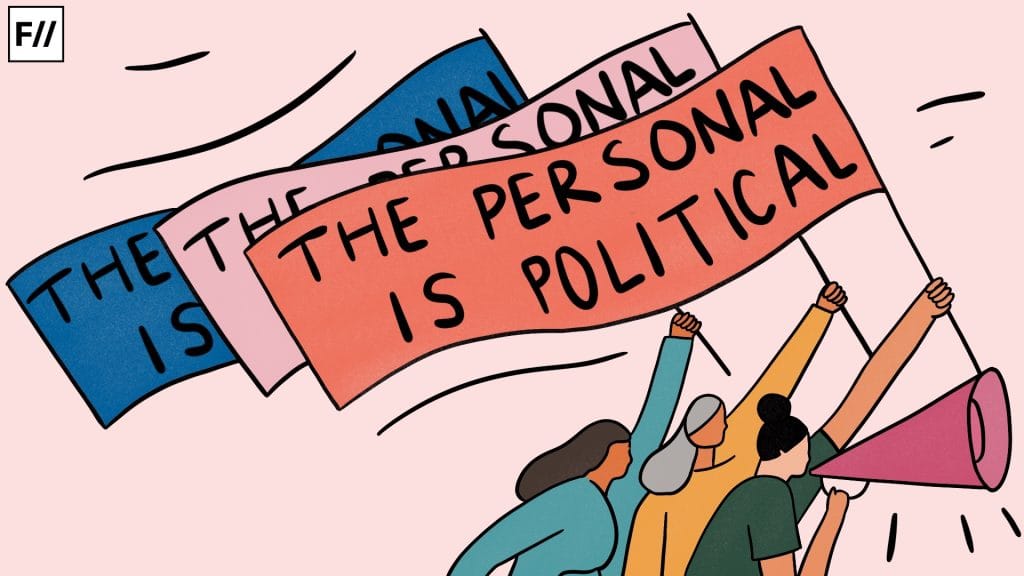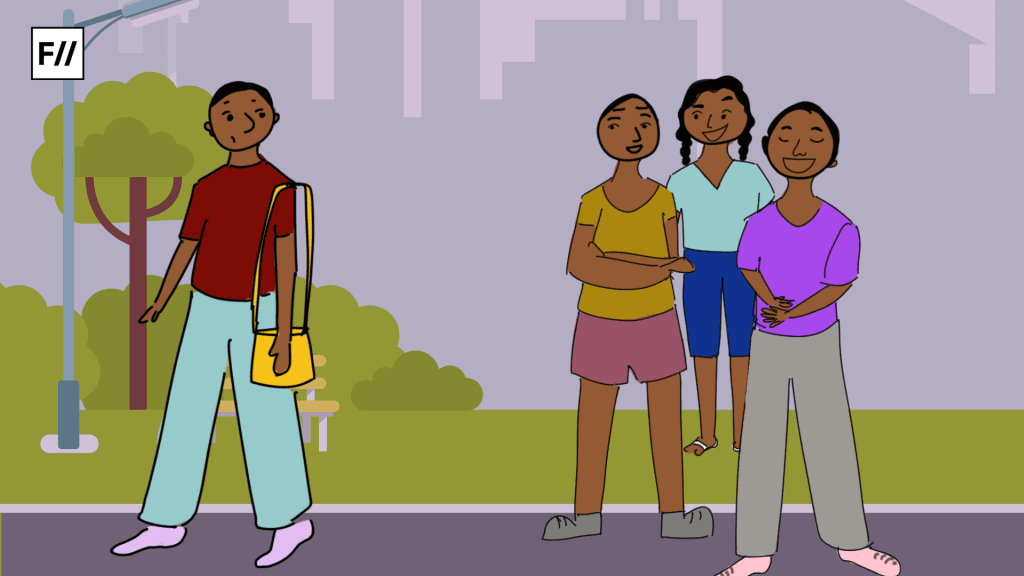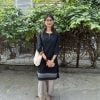The title of this piece would perhaps make you wonder, “That sounds like the pieces of a jigsaw puzzle which cannot be aligned.” Well, that is how identities are, complex, layered yet multi-dimensional. And as disparate as they may seem, they are intertwined.
Gender is an inevitable social construction that is played out in all institutions, ranging from the family to the university, to subordinate and sideline women. It is a product of relations of power. Perhaps one is not born as a woman but is constructed and shaped as one.
The feminisation of Humanities
Being a woman pursuing Humanities, several comments are hurled at me like insults, “kya karna itna bekaar subject padhke?” “sirf ghar ke kaam mein dil lagao, tum ladhki ho,” “at the end of the day, the woman only has to take hold of the kitchen,” bestowing a sense of meaninglessness to all my efforts at trying to stand on my own two feet and carve a life for myself on my terms. I don’t view homemaking or unpaid household work as insulting or less valuable. But these comments are a subtle attack on my sense of self-respect and dignity because I was the only one out of the cousins of my age who willingly opted to put my intelligence under scrutiny and doubt by opting for a subject that is usually a “last option” or not meant for the “intelligent.”

These comments have their roots in the larger structural issue of patriarchy and are an accurate illustration of the defining phrase of the second wave of feminism- “the personal is political“, which explored how womanhood was constructed and shaped within the family. The concept of “imprinting” which has its roots in biology may be invoked here, referring to the process which prepares a girl for her life as she transitions into a young woman. It seems as though any woman who is empowered enough to pursue something that does not fit into their idea of being “worthwhile” is projected as an antithesis to their culture.
While this education in the arts grants a sense of exposure and empowerment, I am also exposed to the stereotypical understanding that labels humanities as “effeminate.” The feminisation of Humanities as a discipline starkly reveals the importance society attaches to market-oriented, profit-driven, “instrumental.” “logical” streams. This understanding is in line with the sexual division of labour, which prescribes that women must only adopt the “affective” roles within the private sphere, while men adopt the “instrumental” roles within the public sphere. But there is nothing inherent in this division. And it is not simply about men. There is a hierarchy not only between men and women but also between streams and subjects.
It becomes imperative for me to assert that I hail from a place of privilege, an upper-middle class Muslim family residing in a mixed community, communicating in English, not witnessing communal discrimination often enough while studying at one of the most elite institutions in the country. This makes it relatively easier for me to articulate my opinion with you. Perhaps it is also this very privilege that allows individuals in my extended family to think that I’m pursuing Humanities only for leisure, and not for financial independence, since I’m not a UPSC aspirant.
Is choice a privilege?
The second wave of feminism, while examining the construction of womanhood, also analysed the obstacles women faced in freely making choices. The notion of “choice feminism” implies that the choice made by women, out of all the available known alternatives, is feminist in nature.

Why should I adhere to the societal standard of having long, thick strands of hair to be viewed as an “ideal” girl? Does having short hair amount to being cunning and deviant in a stereotypical understanding? Does not having a curvy body subject me to further scrutiny? I am more than a short-haired girl who aims to resist anyone who attempts to direct and question my choices, I choose to dress in a way that is often described as “modest.”
You must be thinking, “but that is a choice that in a way, submits to patriarchy,” since history is replete with instances of women being compelled to dress like a submissive, modest and docile individual. However, there is a catch here.
At a juncture where women’s clothing often labels them as either normal or deviant, I choose to not reveal much of my body, except perhaps wearing sleeveless occasionally. This is a choice I make, not succumbing to religious or familial expectations, but my comfort. As a feminist woman, I choose to dress this way because that aligns with my preferences in terms of clothes, jewellery and above all, comfort, while simultaneously avoiding the male gaze. In this case, perhaps the term “modest clothing” should be altered and referred to as “power clothing.” At the same time, I understand that this choice is not accessible to every woman. This element of choice is rooted in privilege.
Maybe there is no universal way of dressing as a feminist. There is no assurance that the way one dresses is free of patriarchal influence, but there is certainly one way of dressing like a feminist- by dressing however you want, free from dictated norms and standards.
A personal and political battle
Being a feminist is a personal, political, internal and social battle that is waged regularly. It entails learning and unlearning about one’s privilege, the roles one is tied down to and the contrast between one’s conscience and one’s socialisation. It is a paradox, an uncomfortable encounter with the dualities of being a woman. When the odds are rarely in your favour, these paradoxes and dualities join forces and create a double burden for women like me, every day.
About the author(s)
Syeda Shua Zaidi is a student of B.A. (Hons) Sociology, at Miranda House. Passionate about poetry, filmmaking, heritage walks, social work and all things vintage, you would find her reading the works of Murakami, Khaled Hosseini and Agatha Christie while treating herself to a cup of tea. Firmly a believer of "disagreements are welcome, disrespect is not".






You are a rockstar.